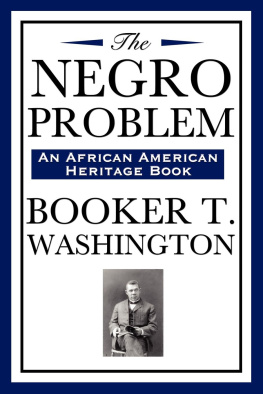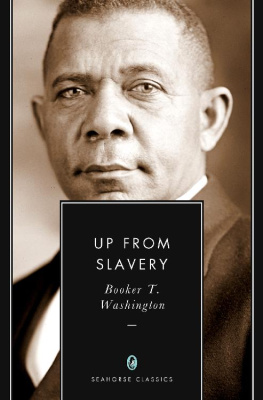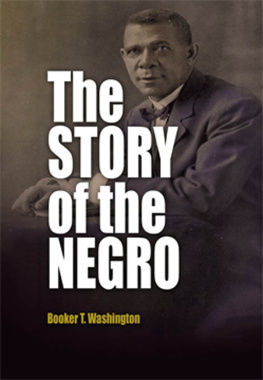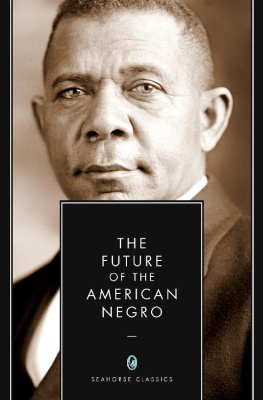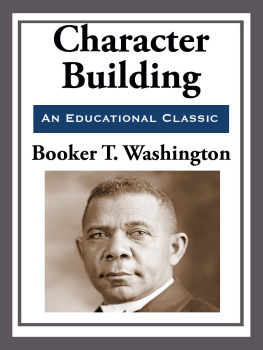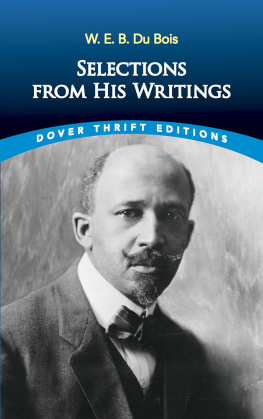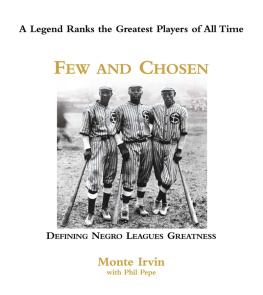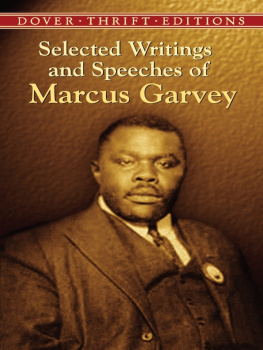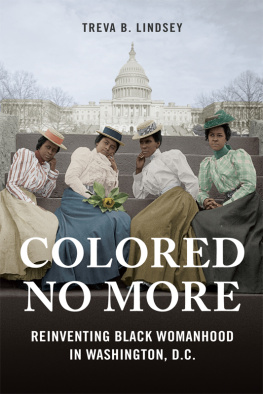Booker T. Washington - The Negro Problem
Here you can read online Booker T. Washington - The Negro Problem full text of the book (entire story) in english for free. Download pdf and epub, get meaning, cover and reviews about this ebook. year: 2013, publisher: Start Publishing LLC, genre: Science. Description of the work, (preface) as well as reviews are available. Best literature library LitArk.com created for fans of good reading and offers a wide selection of genres:
Romance novel
Science fiction
Adventure
Detective
Science
History
Home and family
Prose
Art
Politics
Computer
Non-fiction
Religion
Business
Children
Humor
Choose a favorite category and find really read worthwhile books. Enjoy immersion in the world of imagination, feel the emotions of the characters or learn something new for yourself, make an fascinating discovery.
- Book:The Negro Problem
- Author:
- Publisher:Start Publishing LLC
- Genre:
- Year:2013
- Rating:3 / 5
- Favourites:Add to favourites
- Your mark:
- 60
- 1
- 2
- 3
- 4
- 5
The Negro Problem: summary, description and annotation
We offer to read an annotation, description, summary or preface (depends on what the author of the book "The Negro Problem" wrote himself). If you haven't found the necessary information about the book — write in the comments, we will try to find it.
The Negro Problem — read online for free the complete book (whole text) full work
Below is the text of the book, divided by pages. System saving the place of the last page read, allows you to conveniently read the book "The Negro Problem" online for free, without having to search again every time where you left off. Put a bookmark, and you can go to the page where you finished reading at any time.
Font size:
Interval:
Bookmark:

Start Publishing LLC
Copyright 2012 by Start Publishing LLC
All rights reserved, including the right to reproduce this book or portions thereof in any form whatsoever.
First Start Publishing eBook edition October 2012
Start Publishing is a registered trademark of Start Publishing LLC
Manufactured in the United States of America
10 9 8 7 6 5 4 3 2 1
ISBN 978-1-62558-669-8
This volume is dedicated to my Wife
Margaret James Washington
And to my Brother John H. Washington
Whose patience, fidelity, and hard work have gone far to make the
work at Tuskegee successful.
By Booker T. Washington
The necessity for the races learning the difference between being
worked and working. He would not confine the Negro to industrial life, but believes that the very best service which any one can render to what is called the higher education is to teach the present generation to work and save. This will create the wealth from which alone can come leisure and the opportunity for higher education.
One of the most fundamental and far-reaching deeds that has been accomplished during the last quarter of a century has been that by which the Negro has been helped to find himself and to learn the secrets of civilizationto learn that there are a few simple, cardinal principles upon which a race must start its upward course, unless it would fail, and its last estate be worse than its first.
It has been necessary for the Negro to learn the difference between being worked and workingto learn that being worked meant degradation, while working means civilization; that all forms of labor are honorable, and all forms of idleness disgraceful. It has been necessary for him to learn that all races that have got upon their feet have done so largely by laying an economic foundation, and, in general, by beginning in a proper cultivation and ownership of the soil.
Forty years ago my race emerged from slavery into freedom. If, in too many cases, the Negro race began development at the wrong end, it was largely because neither white nor black properly understood the case. Nor is it any wonder that this was so, for never before in the history of the world had just such a problem been presented as that of the two races at the coming of freedom in this country.
For two hundred and fifty years, I believe the way for the redemption of the Negro was being prepared through industrial development. Through all those years the Southern white man did business with the Negro in a way that no one else has done business with him. In most cases if a Southern white man wanted a house built he consulted a Negro mechanic about the plan and about the actual building of the structure. If he wanted a suit of clothes made he went to a Negro tailor, and for shoes he went to a shoemaker of the same race. In a certain way every slave plantation in the South was an industrial school. On these plantations young colored men and women were constantly being trained not only as farmers but as carpenters, blacksmiths, wheelwrights, brick masons, engineers, cooks, laundresses, sewing women and housekeepers.
I do not mean in any way to apologize for the curse of slavery, which was a curse to both races, but in what I say about industrial training in slavery I am simply stating facts. This training was crude, and was given for selfish purposes. It did not answer the highest ends, because there was an absence of mental training in connection with the training of the hand. To a large degree, though, this business contact with the Southern white man, and the industrial training on the plantations, left the Negro at the close of the war in possession of nearly all the common and skilled labor in the South. The industries that gave the South its power, prominence and wealth prior to the Civil War were mainly the raising of cotton, sugar cane, rice and tobacco. Before the way could be prepared for the proper growing and marketing of these crops forests had to be cleared, houses to be built, public roads and railroads constructed. In all these works the Negro did most of the heavy work. In the planting, cultivating and marketing of the crops not only was the Negro the chief dependence, but in the manufacture of tobacco he became a skilled and proficient workman, and in this, up to the present time, in the South, holds the lead in the large tobacco manufactories.
In most of the industries, though, what happened? For nearly twenty years after the war, except in a few instances, the value of the industrial training given by the plantations was overlooked. Negro men and women were educated in literature, in mathematics and in the sciences, with little thought of what had been taking place during the preceding two hundred and fifty years, except, perhaps, as something to be escaped, to be got as far away from as possible. As a generation began to pass, those who had been trained as mechanics in slavery began to disappear by death, and gradually it began to be realized that there were few to take their places. There were young men educated in foreign tongues, but few in carpentry or in mechanical or architectural drawing. Many were trained in Latin, but few as engineers and blacksmiths. Too many were taken from the farm and educated, but educated in everything but farming. For this reason they had no interest in farming and did not return to it. And yet eighty-five per cent. of the Negro population of the Southern states lives and for a considerable time will continue to live in the country districts. The charge is often brought against the members of my raceand too often justly, I confessthat they are found leaving the country districts and flocking into the great cities where temptations are more frequent and harder to resist, and where the Negro people too often become demoralized. Think, though, how frequently it is the case that from the first day that a pupil begins to go to school his books teach him much about the cities of the world and city life, and almost nothing about the country. How natural it is, then, that when he has the ordering of his life he wants to live it in the city.
Only a short time before his death the late Mr. C.P. Huntington, to whose memory a magnificent library has just been given by his widow to the Hampton Institute for Negroes, in Virginia, said in a public address some words which seem to me so wise that I want to quote them here:
Our schools teach everybody a little of almost everything, but, in my opinion, they teach very few children just what they ought to know in order to make their way successfully in life. They do not put into their hands the tools they are best fitted to use, and hence so many failures. Many a mother and sister have worked and slaved, living upon scanty food, in order to give a son and brother a liberal education, and in doing this have built up a barrier between the boy and the work he was fitted to do. Let me say to you that all honest work is honorable work. If the labor is manual, and seems common, you will have all the more chance to be thinking of other things, or of work that is higher and brings better pay, and to work out in your minds better and higher duties and responsibilities for yourselves, and for thinking of ways by which you can help others as well as yourselves, and bring them up to your own higher level.
Some years ago, when we decided to make tailoring a part of our training at the Tuskegee Institute, I was amazed to find that it was almost impossible to find in the whole country an educated colored man who could teach the making of clothing. We could find numbers of them who could teach astronomy, theology, Latin or grammar, but almost none who could instruct in the making of clothing, something that has to be used by every one of us every day in the year. How often have I been discouraged as I have gone through the South, and into the homes of the people of my race, and have found women who could converse intelligently upon abstruse subjects, and yet could not tell how to improve the condition of the poorly cooked and still more poorly served bread and meat which they and their families were eating three times a day. It is discouraging to find a girl who can tell you the geographical location of any country on the globe and who does not know where to place the dishes upon a common dinner table. It is discouraging to find a woman who knows much about theoretical chemistry, and who cannot properly wash and iron a shirt.
Font size:
Interval:
Bookmark:
Similar books «The Negro Problem»
Look at similar books to The Negro Problem. We have selected literature similar in name and meaning in the hope of providing readers with more options to find new, interesting, not yet read works.
Discussion, reviews of the book The Negro Problem and just readers' own opinions. Leave your comments, write what you think about the work, its meaning or the main characters. Specify what exactly you liked and what you didn't like, and why you think so.

